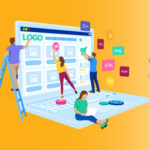In an increasingly digital world, where information and services are readily available online, the concept of inclusivity becomes more critical than ever. One aspect of digital inclusivity that often goes overlooked is web accessibility for users with disabilities. Web accessibility refers to designing and developing websites in a way that ensures people with disabilities can perceive, navigate, interact with, and understand the content. It is not only a matter of compliance with legal regulations but also a fundamental ethical and practical consideration that directly impacts the lives of millions of individuals.
Table of Contents
Understanding Disabilities and Digital Divide

Disabilities come in various forms, including visual, auditory, cognitive, and motor impairments. Visual impairments might involve blindness, low vision, or color blindness. Auditory impairments refer to deafness or hearing difficulties. Cognitive impairments encompass conditions that affect cognitive processes such as learning disabilities, attention disorders, or memory issues. Motor impairments involve difficulties in using physical inputs like keyboards or mice, often associated with conditions like paralysis or tremors.
Failing to make websites accessible effectively creates a digital divide, limiting access to information, services, and opportunities for people with disabilities. Without proper consideration for accessibility, a significant portion of the population is excluded from engaging with digital content, leading to social and economic disparities.
Legal and Ethical Imperatives

The legal landscape around web accessibility has been evolving. Many countries have enacted laws that mandate accessible digital content, often referencing international guidelines such as the Web Content Accessibility Guidelines (WCAG) developed by the World Wide Web Consortium (W3C). Organizations that ignore these guidelines could face legal consequences, including fines and legal actions.
However, the importance of web accessibility goes beyond legal obligations. It is a matter of ethics and social responsibility. Inclusion lies at the heart of human rights, and the digital space should not be an exception. Making websites accessible is about treating all users with dignity and ensuring they have equal access to the benefits of the internet.
Benefits of Web Accessibility

- Expanded Audience Reach: By making your website accessible, you tap into a vast market of potential users who may have disabilities. This not only increases your website’s traffic but also enhances your brand’s reputation for inclusivity.
- Improved User Experience for All: The principles of web accessibility often lead to better design practices. For instance, providing clear navigation benefits all users, not just those with disabilities. Captions and transcripts for multimedia content assist not only the deaf community but also users in noisy environments.
- SEO and Search Visibility: Many accessibility practices align with search engine optimization (SEO) guidelines. Semantic HTML and descriptive alt text for images not only help screen readers but also enhance search engine rankings, leading to improved discoverability.
- Innovation and Creativity: Designing accessible websites encourages creative problem-solving. Developers are pushed to find innovative ways to present information and interact with users, which can lead to new design paradigms that benefit everyone.
- Future-Proofing: As technology evolves, so do devices and modes of interaction. Accessible websites are more adaptable to emerging technologies, ensuring that your content remains accessible regardless of how users access it.
Practical Steps to Ensure Accessibility

- Semantic HTML: Use proper HTML elements to structure content. This not only aids screen readers but also improves search engine ranking and overall user experience.
- Descriptive Alt Text: Provide descriptive alt text for images, ensuring that visually impaired users can understand the content.
- Keyboard Navigation: Ensure that all functionalities can be accessed and operated using a keyboard alone. This is vital for users who rely on keyboard navigation due to motor impairments.
- Captions and Transcripts: Provide captions for videos and audio content and transcripts for podcasts. This benefits users with auditory impairments as well as those in noisy environments.
- Readable Fonts and Colors: Choose fonts that are easy to read, and ensure there is enough contrast between text and background colors to accommodate users with visual impairments.
- Avoiding Flashing Content: Flashing or rapidly changing content can trigger seizures for some users. Avoid such content or provide options to disable animations.
- Clear Navigation: Organize your website’s navigation in a logical and clear manner to help all users find their way around easily.
- User Testing: Regularly test your website with users who have disabilities. Their feedback will be invaluable in identifying areas for improvement.
Conclusion
Web accessibility is not just a technical consideration; it’s a fundamental human right and a reflection of our commitment to inclusivity and equal access. By designing and developing websites with the needs of users with disabilities in mind, we create a more just and equitable digital landscape. The benefits extend far beyond compliance and legal requirements, touching on improved user experiences, expanded reach, and a positive brand image. As we forge ahead in the digital age, let’s ensure that no one is left behind by making web accessibility a top priority.
Need Help With Website Development Or Maintenance?
RankON Technologies is a leading website development company in India that offers top-quality web design services and website maintenance services for small to large size businesses at very affordable prices. Please check our website development packages and website maintenance packages now!
Get in Touch!Website Maintenance Packages











